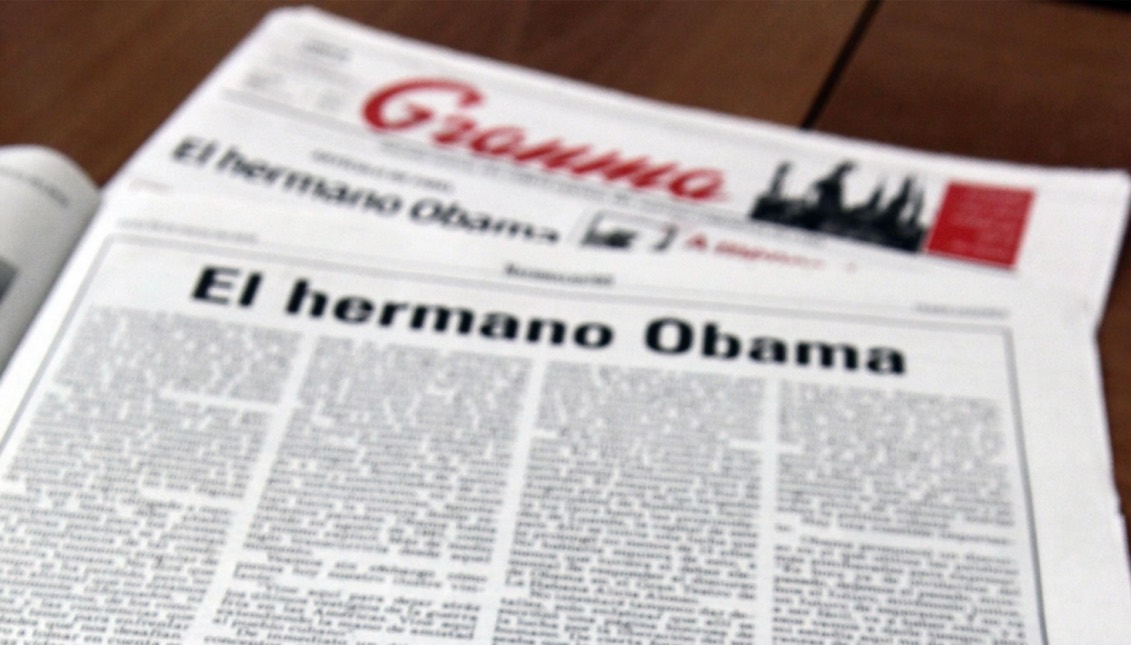
Castro is not an old man having a temper tantrum...
First things first: Fidel Castro’s letter criticizing Obama’s speech in Havana, will not — I repeat, will not — derail, stop or even slow down the process of…
First things first: Fidel Castro’s letter criticizing Obama’s speech in Havana, will not — I repeat, will not — derail, stop or even slow down the process of normalizing relations between Cuba and the U.S. And that’s good.
But the historic leader of the Cuban Revolution would have had to be dead to remain silent about Obama’s visit, and particularly about his words at the Gran Teatro Nacional Alicia Alonso. Yet much to the frustration of so many who have gleefully announced his demise dozens of times, the older Castro is ill and fragile, but very much alive.
What Castro did with “Brother Obama”, published in Granma, the Cuban communist party’s newspaper last Monday, was to jump into the arena of public debate with a point of view that many would prefer to ignore.
That in the midst of so much unquestioning praise for Obama’s visit and words, Fidel Castro, who although no longer President of Cuba retains a great deal of influence, had dared dispute the U.S. President’s advice to forget history, and had raised doubts about his real intentions, has provoked a storm of often insulting criticism. It is as if freedom of expression applied to everybody except the aging Cuban leader.
“Obama delivered a speech in which he used the most honeyed words to say: ‘It's high time to forget the past, let’s leave the past behind, look to the future, let's look at it together, a future of hope,” Castro wrote. And then added some undisputable facts: “We were supposed to risk a heart attack upon hearing these words of the President of the United States. After a merciless blockade that has lasted almost 60 years? And those who have died in the mercenary attacks on Cuban ships and ports, an airliner full of passengers detonated in midair, mercenary invasions, multiple acts of violence and force?”
No, forgiving may be possible and even desirable, but forgetting is not.
In regard to Obama’s intentions on taking the undeniably courageous step of traveling to Cuba the signals are, to say the least, mixed. Not a week had gone by after Obama told Cubans that the U.S. “will not impose our political or economic system on you,” when Washington announced a new regime-change operation involving Cuba youth for which almost $800,000 have been assigned. Previous experience shows that these "democracy building programs," as the State Department calls them, are really about overthrowing the government.
Obviously, Washington --or Havana-- cannot have it both ways.
Fidel Castro’s reaction to Obama’s speech was not –as some have said--a temper tantrum from an old man watching his life’s labor being dismantled in front of his eyes, but a very real contribution to understanding the risks of basing a new relation between the U.S. and Cuba on forgetting half a century of hostility or turning a blind eye to the contradictions between Obama’s words and Washington’s actions.
Love him or hate him, in the midst of so much unquestioning praise, the words of the historic leader of the Cuban Revolutions deserve to be heard.









LEAVE A COMMENT:
Join the discussion! Leave a comment.